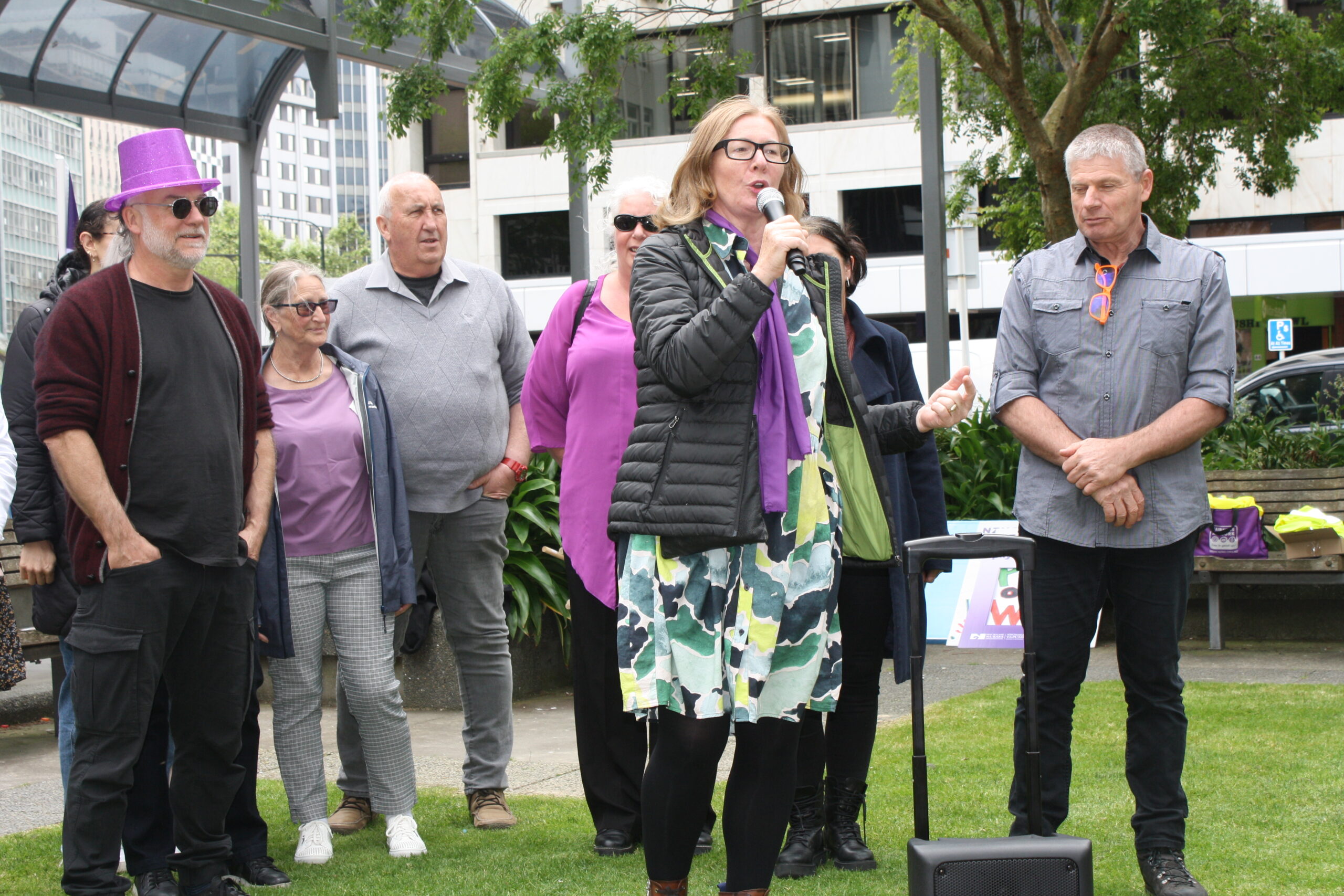Around the motu, 4200 members employed by GPs and urgent care clinics, and by Whānau Āwhina Plunket, walked off the job for four hours from 10am today in protest over pay offers that fall well below that of colleagues in Te Whatu Ora.
Both groups rejected an employer offer of 3 per cent or less, and further talks have stalled because employers say their funding from Government is too low to offer more.
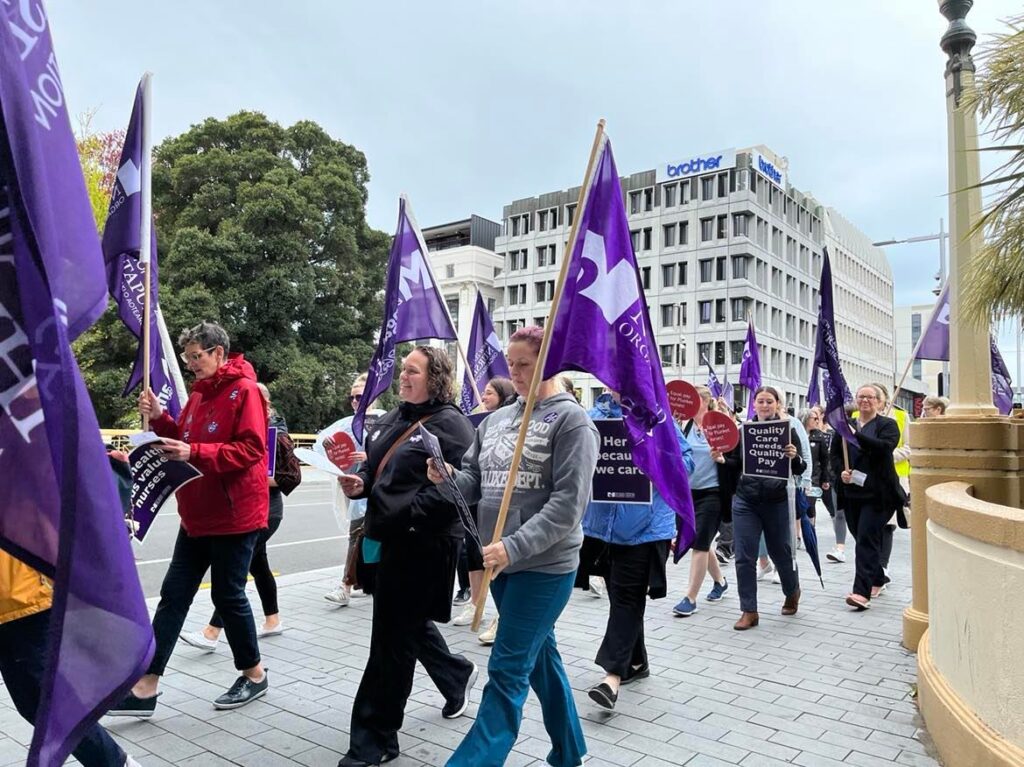
About 200 striking Christchurch members took their demand for fair pay direct to the source, stopping outside Ministry of Health offices during a hikoi from the Bridge of Remembrance, along Oxford Terrace and Durham St.
Registered nurse Paula Hill used to work full-time for Whānau Awhina Plunket but said she had to take up work with Te Whatu Ora Waitaha Canterbury to earn a more livable wage.
“I couldn’t survive on Plunket pay alone.”
“I now work for the [former] DHB, and as a casual for Plunket, hoping that one day they might get a pay rise and I can go back.”
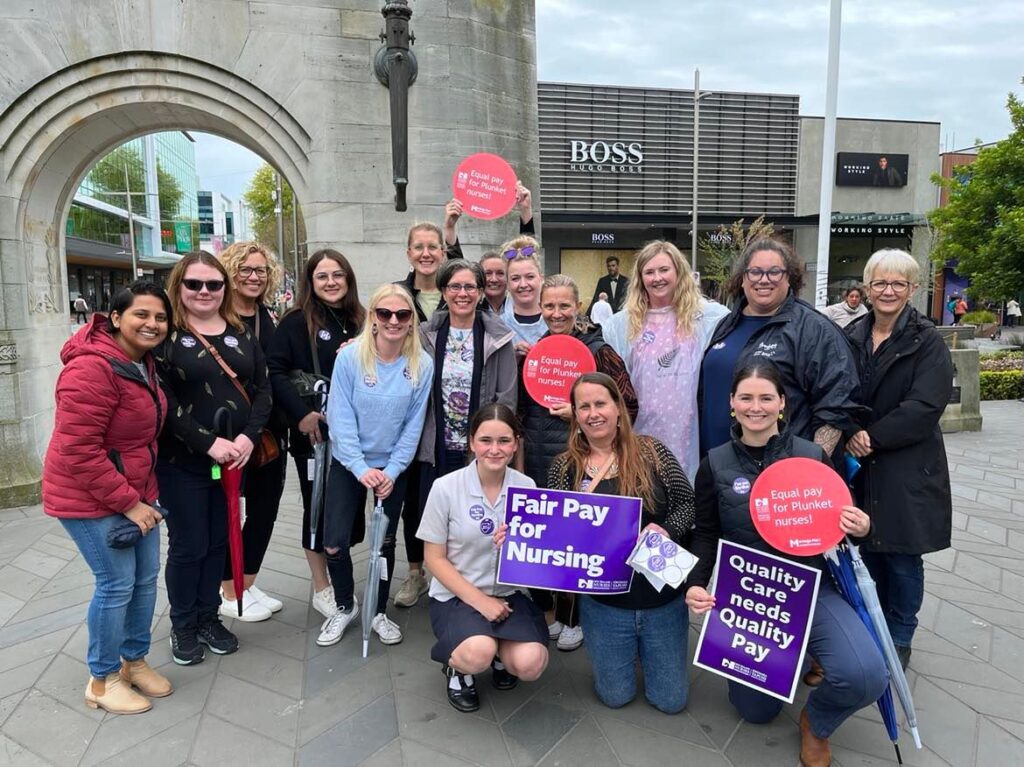
It was the first time Plunket nurses have taken industrial action in the history of the service.
Karli Wyatt has been a Plunket nurse for six years and said the decision to take industrial action was hard, but necessary to stem the flow of nurses out of the sector.
Wyatt said she currently had about 850 clients – at least 150 more than was recommended, or safe.
“I end up doing a lot of the work in my own time, in the evenings and my time off because families have questions and I feel like they rely on me to answer them.”
Practice nurse Hannah Fernando from Merivale Medical Centre also works for Pegasus 24 Hours Surgery and said the primary care roles were more demanding than her previous work in a general medical ward at Christchurch Hospital.
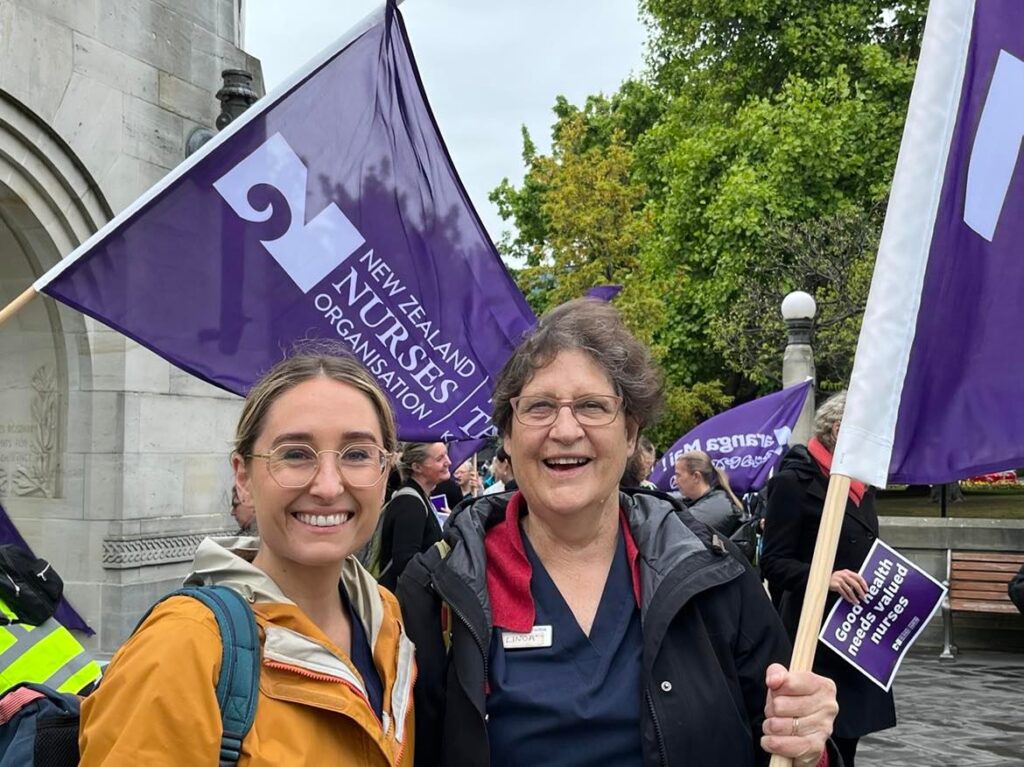
“I feel like there’s a lot more individual responsibility as a primary care nurse.”
She was constantly asked to do extra shifts at the 24 Hour Surgery.
While Fernado hopes to see a change in nursing pay and conditions, she’s unsure how long she will continue in the sector.
The weight of responsibility amidst high and constant patient needs made her feel guilty about taking a dinner break or even going to the toilet, she said.
“I’m just sick of it, and if I keep going I’ll have nothing left to give to me.”
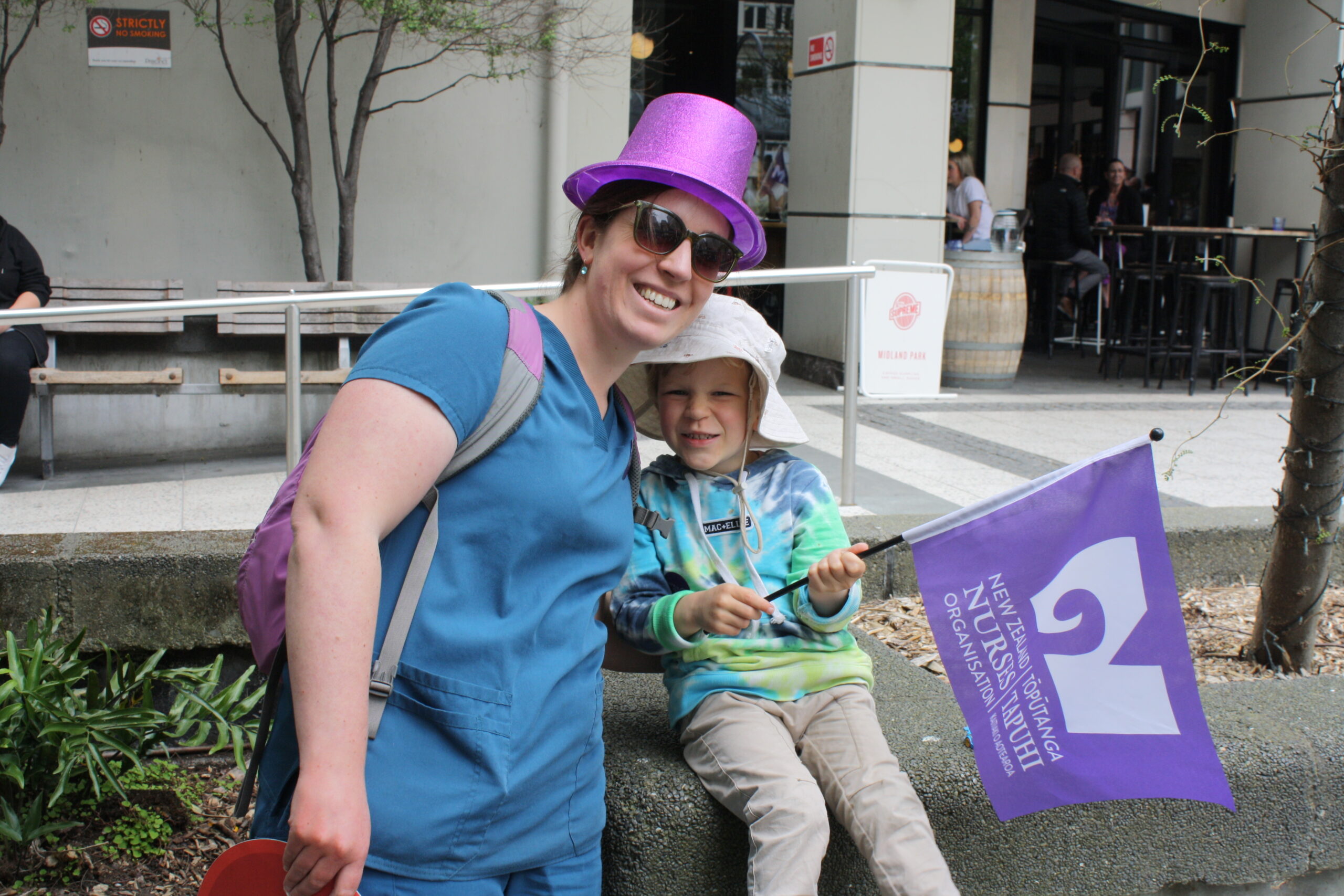
In the capital, about 100 primary health care nurses and supporters took over a central city park to call for pay parity, blasting out Aretha Franklin’s “Respect” to sunny lunchtime crowds.
Nurse and NZNO delegate Hannah Cook, who has worked for Plunket for 21 years, said it was becoming harder “to accept lower wages than my colleagues working at Te Whatu Ora”.
“We are told we are valued and respected – but what is the Government doing to show that?”
Newlands Medical Centre nurse Bonnie Harper said the disparity needed to be recognised.
“Nurses aren’t going to put up with it anymore, they’re walking.”
Wellington practice nurses Isabella Mapusua-Laulu and Amiria Rangitutia said rising costs added to the struggle, especially those with families and Māori and Pasifika.
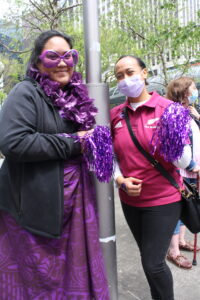
NZNO’s Te Whatu Ora collective agreement bargaining team turned out to support their striking colleagues.
“We’re behind you, every step of the way,” Hawke’s Bay nurse Noreen McCallan told the crowd.
Kaiwhakahaere Kerri Nuku told strikers “every nurse, everywhere deserves the same pay”.
“We will continue to rally, to gather momentum until the Government realises that this injustice impacts on the quality of care we can provide.”
Hard road ahead, but in for the long haul
NZNO chief executive Paul Goulter, who spoke at the Christchurch rally, said the combined action by primary health and Plunket nurses was “very significant”, but more may be needed to achieve pay parity.
” . . . to win this, is going to take a lot of effort and we’re running up hard against a Government that’s not prepared to listen to you.”
Goulter said he met with Health Minister Andrew Little last week and made the case for pay parity for all primary health care nurses.
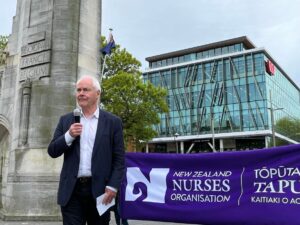
He said the fact that primary health care nurses were paid 10-25 per cent less than their counterparts was an absolute disgrace. “It’s disrespectful to you and to the people you work with.”
“So we put that to Andrew, and he said ‘yeah, we agree, we’re trying’.”
Goulter asked the members, “So what do we say to Andrew?”
“Shame,” they responded.
Goulter told the crowd that for NZNO, there were no “ifs or buts” about achieving pay parity for members.
“We told him we’re not going away and we’re going to pursue this right to the finish,” Goulter said.
“The Government just has to start pay parity and it has to start . . . when?”
“Now,” members responded.
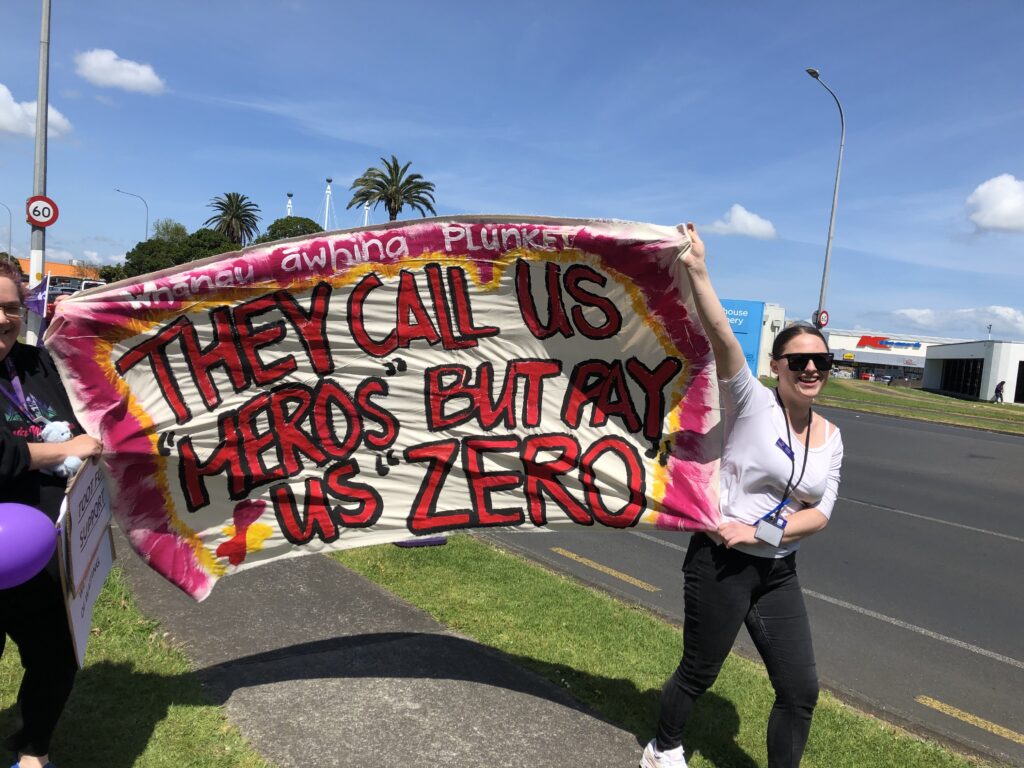
Auckland Whānau Awhina Plunket nurses take their message to the street during Wednesday’s strike.
Strike a ‘necessary evil’, employers say
GenPro vice chair and Riccarton Clinic owner Angus Chambers told Kaitiaki the employers supported the action by practice nurses, describing it as “a necessary evil”.
” . . . but we absolutely agree that there’s a significant problem with the differences between primary and secondary pay and we’re very keen to get it resolved.”
Chambers said an improved offer to nurses was unlikely without a more substantial increase in the Government’s capitation funding to GPs. This year it was 2.78 per cent.
He said legislation prevents GPs from raising patient fees, and funding nurse pay increases by reducing the wages of other staff was “not entirely fair” and would risk losing them in a very competitive trans-Tasman market.
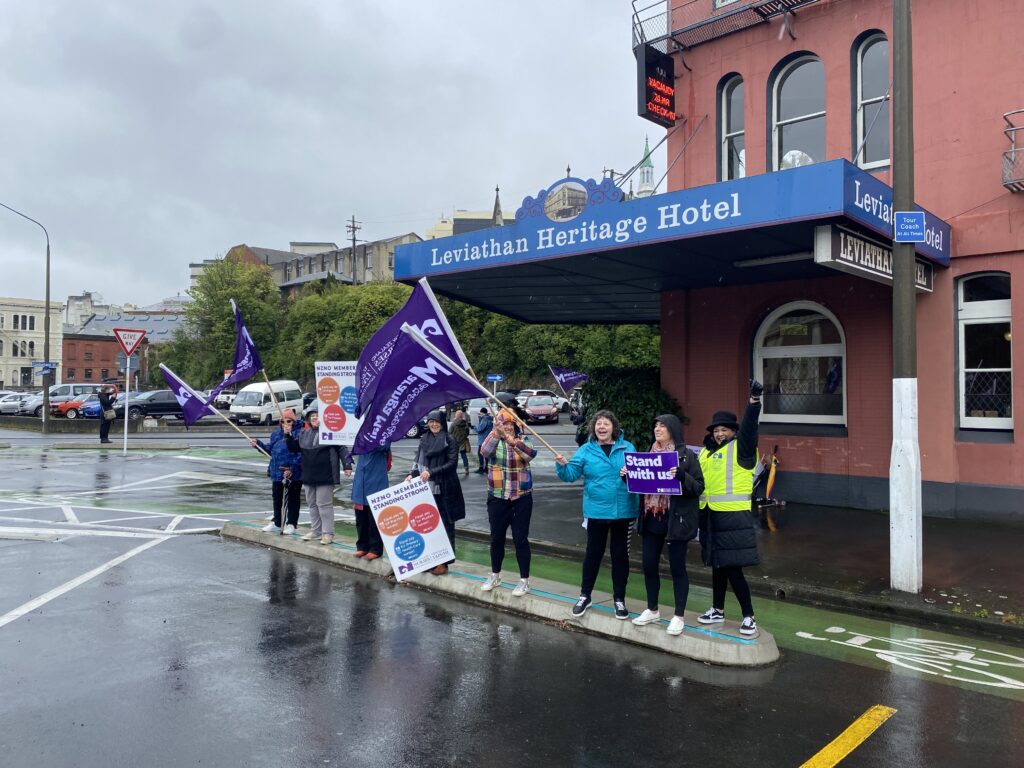
Funding nurse pay parity from “shareholders’ pockets” would eliminate any incentive for GPs to buy into primary health care.
“And we’re already seeing individual GPs are reluctant to take the ownership option and, the investment in health care that comes from that.”









